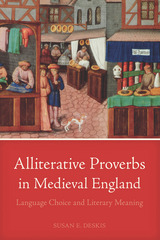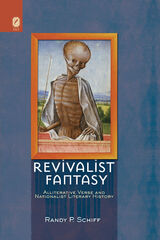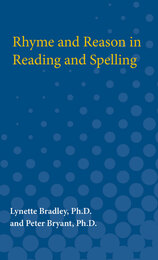3 books about Alliteration

Alliterative Proverbs in Medieval England
Language Choice and Literary Meaning
Susan E. Deskis
The Ohio State University Press, 2016
Medieval England’s specific political and linguistic history encompasses a great number of significant changes, some of the most disruptive of which were occasioned by the Norman Conquest. The alliterative proverb, with roots in Old English and continued vitality in Middle English, serves as a unique verbal icon allowing exploration of cultural conditions both before and after the Conquest. As a durable yet flexible form, the proverb remained just as important in the fifteenth century as it was in the sixth.
The proverb has been an underutilized resource in tracing the linguistic and intellectual cultures of the past. Making the fullest use of this material, this study, by Susan E. Deskis, is complex in its combination of philology, paroemiology, literary history, and sociolinguistics, ultimately reaching conclusions that are enlightening for both the literary and linguistic histories of medieval England. In the language ecology of England from about 1100 to about 1500, where English, French, and Latin compete for use, alliterative proverbs are marked not only by the choice of English as the language of expression but also because alliteration in Middle English connotes a conscious connection to the past. Alliterative Proverbs in Medieval England: Language Choice and Literary Meaning explores how that connection is exploited in various literary genres from school texts and sermons to romances and cycle plays.
The proverb has been an underutilized resource in tracing the linguistic and intellectual cultures of the past. Making the fullest use of this material, this study, by Susan E. Deskis, is complex in its combination of philology, paroemiology, literary history, and sociolinguistics, ultimately reaching conclusions that are enlightening for both the literary and linguistic histories of medieval England. In the language ecology of England from about 1100 to about 1500, where English, French, and Latin compete for use, alliterative proverbs are marked not only by the choice of English as the language of expression but also because alliteration in Middle English connotes a conscious connection to the past. Alliterative Proverbs in Medieval England: Language Choice and Literary Meaning explores how that connection is exploited in various literary genres from school texts and sermons to romances and cycle plays.
[more]

Revivalist Fantasy
Alliterative Verse and Nationalist Literary History
Randy P. Schiff
The Ohio State University Press, 2011
Revivalist Fantasy: Alliterative Verse and Nationalist Literary History by Randy P. Schiff contributes to recent conversations about disciplinary history by analyzing the nationalist context for scholars and editors involved in disseminating the literary historical theory of an Alliterative Revival. Redirecting Alliterative Revivalism’s backward gaze, Revivalist Fantasy re-engages with the local contexts of select alliterative works.
Schiff revises readings of alliterative poetry as Francophobic, exploring the transnational imperialist elitism in the translation William of Palerne. He contributes to the discussion of gender in Sir Gawain and the Green Knight by linking the poem’s powerful female players with anxieties about women’s control of wealth and property in militarized regions of England. The book also explores the emphatically pre-national, borderlands sensibilities informing the Awntyrs off Arthure and Golagros and Gawane, and it examines the exploitation of collaborative composition in the material legacy of the Piers Plowman tradition.
Revivalist Fantasy concludes that Revivalist nationalism obscures crucial continuities between late-medieval and post-national worlds and that critics’ interests should be channeled into the forging of connections between past and present rather than suspended in the scholarly pursuit of origins. The book will be of interest to scholars of editorial history and translation studies and to those interested in manuscript studies.
Schiff revises readings of alliterative poetry as Francophobic, exploring the transnational imperialist elitism in the translation William of Palerne. He contributes to the discussion of gender in Sir Gawain and the Green Knight by linking the poem’s powerful female players with anxieties about women’s control of wealth and property in militarized regions of England. The book also explores the emphatically pre-national, borderlands sensibilities informing the Awntyrs off Arthure and Golagros and Gawane, and it examines the exploitation of collaborative composition in the material legacy of the Piers Plowman tradition.
Revivalist Fantasy concludes that Revivalist nationalism obscures crucial continuities between late-medieval and post-national worlds and that critics’ interests should be channeled into the forging of connections between past and present rather than suspended in the scholarly pursuit of origins. The book will be of interest to scholars of editorial history and translation studies and to those interested in manuscript studies.
[more]

Rhyme and Reason in Reading and Spelling
Lynette Bradley
University of Michigan Press, 1985
Nursery rhymes have been told to children for centuries. Many people think that they are just meant to make children smile. However, preschool children's awareness of rhyme and alliteration has an important influence on their success in learning to read and to spell. In Rhyme and Reason in Reading and Spelling, the authors explore this causal hypothesis using a new research design of combining longitudinal methods with intervention, and they provide strong evidence to show that there is a positive relationship between recognizing similar sounds, as found in nursery rhymes, and learning to read and to spell. The authors also investigate the relationship of this skill to children's learning difficulties. This is the first volume in the International Academy for Research in Learning Disabilities Monograph series.
[more]
READERS
Browse our collection.
PUBLISHERS
See BiblioVault's publisher services.
STUDENT SERVICES
Files for college accessibility offices.
UChicago Accessibility Resources
home | accessibility | search | about | contact us
BiblioVault ® 2001 - 2024
The University of Chicago Press









